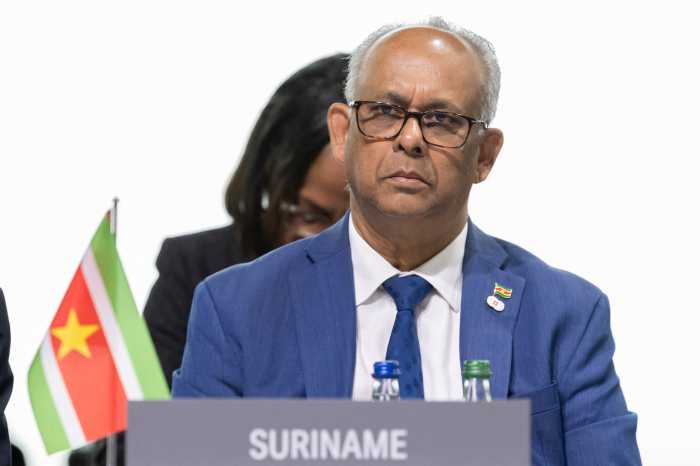A week after the conclusion of a special conference to raise grants and loans to rebuild Caribbean nations battered by back to back hurricanes, the region is slowing coming to the realization that not that much money will be available for the rebuilding process after all and that additional financing will be required going forward.
Gaston Browne, prime minister of Antigua and Barbuda is among the first to suggest that Barbuda, where more than 90 percent of the buildings were either damaged or destroyed, will barely get less than 10 percent of the $2B in loans and grants to rebuild Antigua’s sister isle. The smaller island in the federation is almost deserted with most of its 1,500 residents, jobless, homeless and still marooned in Antigua, two months after Irma pulverized it.
“My understanding is that it is about $1.2B in pledged of which $1B was pledged by the Inter American Development Bank (IDB). Those are loans. We are not members of the IDB. Secondly, The Netherlands pledged $700M for their overseas territories. So that the remainder of about maybe $450M, that is the portion we will share,” he told the Observer Newspaper.
Browne and his cabinet had suggested that the island will need in excess of $200M to rebuild stronger and better as the 2018 hurricane season is now a mere seven months away and barely any rebuilding works have started. He is worried that there might not be enough to go around since Dominica is the other full CARICOM member state that had suffered a similar level of damage to Barbuda so there might not be enough money for rebuilders.
There is also deep fear that the 2017 season with two powerful consecutive category five storms might well be confirmation of long held beliefs that hurricanes will be increasing in intensity from now on. Dominica, incidentally, is also not an IDB member and will remain ineligible for the $1B in loans the bank plans to make available.
It is perhaps one reason why Allen Chastenet, St. Lucia’s Prime Minister, used the opportunity of a major international tourism conference in Jamaica this week to call on the International Monetary Fund (IMF) to come up with ways to reclassify funds regional member states borrow from the agency to help them cope with natural disasters.
Caribbean countries need concessions rather than expensive loans to rebuild battered nations. In fact, a special or dedicated fund from which nations could draw down without all the bureaucratic red tape might be better than what obtains now, storm or not.
“No one is calculating the millions of dollars that are being lost on a daily basis. No one is giving consideration to the fact that there is no expenditure taking place in Puerto Rico and the close down of the cruise shipping industry in some islands. Ports have been destroyed and they can’t get in. St. Maarten is literally closed,” the prime minister said as he made a case for soft financing.
“We have no choice but to spend the money, because resilience is the insurance that investors need following the devastation to the region, caused by Hurricanes Irma and Maria.”
Like Browne, he was clear in his view that while the west helped in the aftermath of the storms, the money available was insufficient to rebuild the battered island nations.
The irony of the 2017 season is that 13 of the countries which are most dependent on tourism were the ones where Maria and Irma came ashore with devastating consequences — St. Martin, Anguilla, Dominica, Barbuda, St. Barts, the British Virgin Islands, the United States Virgin Islands, Turks and Caicos, the Dominican Republic, and Puerto Rico were recently ravaged by the passage of Hurricanes Irma and Maria.
And these two came at a time when regional destinations were experiencing record numbers of arrivals. Last year 29 million people visited the region and 2017 was showing similar signs until Maria and Irma called on the Caribbean.

























